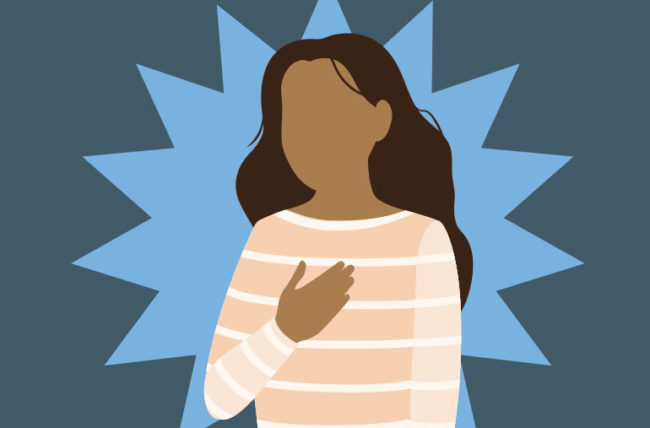A fleeting burst of pain slams your chest, and a terrifying two-word combination — HEART ATTACK — immediately enters your thoughts.
Take a deep breath. Oftentimes, the situation isn’t what you fear.
Some chest pain symptoms, while scary and alarming, are unlikely to signal a heart attack. Let’s walk through some of those indicators and what they might mean with cardiologist Curtis Rimmerman, MD.
An important note, though: Never assume chest pain is nothing to worry about. Given the game-ending potential of a heart attack, any chest pain deserves attention. Don’t wave it off.
“When in doubt, err on the side of caution and visit a doctor or emergency room,” notes Dr. Rimmerman.
How to tell if chest pain is serious
Some types of chest pain should send you to the emergency room — particularly if it lasts for at least five minutes.
Symptoms could include new or unexplained chest pain coupled with shortness of breath, a cold sweat, nausea, fatigue or lightheadedness. Aside from your chest, the pain, pressure or discomfort also may radiate to your:
Arms.
Back.
Jaw.
Neck.
Upper stomach.
Lasting and unrelenting pain in these areas may signal a heart attack, or myocardial infarction, says Dr. Rimmerman. Call 911 to seek immediate treatment to save heart muscle.
Symptoms that suggest another problem
More often than not, chest pain does not signal a heart attack. A study of emergency room visits found that less than 6% of patients arriving with chest pain had a life-threatening heart issue.
Here are some examples of chest pain that usually doesn’t result in a heart attack diagnosis.
Momentary chest discomfort
You’re sitting at the kitchen table sipping coffee when chest pain strikes like a lightning bolt. It’s sudden, swift and stabbing. The feeling — which many compare to getting an electrical shock — lasts only an attention-grabbing moment.
The good news? The brief zap is usually not indicative of a heart attack, which often brings an unrelenting pain that lasts several minutes.
Momentary chest discomfort is more likely to result from:
An injury such as broken or bruised ribs.
A pulled muscle in your chest wall.
Inflammation in your rib cartilage.
Fibromyalgia.
Shingles.
Pinpoint chest discomfort
With every deep breath or cough, pain pierces your chest. Moving around and changing positions only seems to make it worse, too.
If this describes your symptoms, odds are that you’re dealing with a lung-related issue. This is even more likely if the pain is focused on the right side of your chest, away from your heart. Possible causes include:
Pneumonia or some other infection
Inflammation in the lining of your lungs (pleurisy).
A blood clot in your lungs.
An asthma attack.
And while these lung issues are not a heart attack, they are concerning enough to warrant a call to your healthcare provider.
Discomfort that lessens with exercise
If a sharp pain strikes your chest but improves as you move around a bit… well, you may be looking at a case of heartburn (acid reflux) or some other gastrointestinal issue.
An estimated 15 million Americans a day experience heartburn, which brings an uncomfortable burning feeling in your chest and a sour feeling in your throat. An over-the-counter antacid can help bring some relief.
Another reason your chest may hurt
That pain in your chest could be linked to another kind of attack that has nothing to do with your heart.
A panic attack or anxiety can reveal itself with symptoms — chest tightness, sweating, shortness of breath — that mimic those of a heart attack. There are some key differences between a panic attack and a heart attack, though.
Many heart attacks follow physical strain or exertion, an indicator not typically connected to panic attacks.
Panic attacks often feature a stabbing pain as opposed to the elephant-on-your-chest squeezing feeling that often accompanies a heart attack.
Pain from heart attacks frequently radiates to other areas. In a panic attack, it usually stays in the chest area.
Heart attack symptoms vary widely
Dr. Rimmerman emphasizes that the symptoms of heart attack or angina can vary greatly from person to person. Some people experience no symptoms at all. Others experience crushing chest pain. Others may feel only arm, throat or jaw discomfort.
But the discomfort is usually unrelenting, typically lasting five minutes or more.
“Regardless of where the pain is, people typically can’t find a position that relieves the pain,” Dr. Rimmerman says. “Nor do they find relief by taking a drink of water, popping antacids or taking deep breaths.”
And that means it’s time to call 911.






























